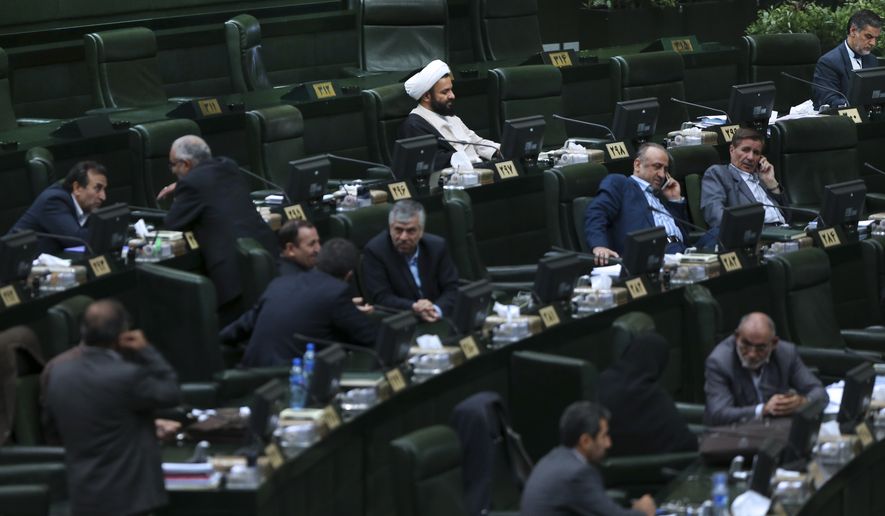OPINION:
In the summer of 2013, two Cuban dissidents visited Washington, D.C. and asked to meet with then-freshman Texas senator Ted Cruz. Given his Cuban heritage through his father, I accepted the request and agreed to arrange the meeting, but assumed they were there to deliver a Castro-approved message that the regime was “moderating” because they were allowing dissidents to travel.
As it turned out, Elizardo Sanchez and Guillermo Fariñas said no such thing. Cuba was, they reported, a big jail. Fidel and Raul Castro remained the implacable enemies of America and wanted to do us harm. But they needed money, and were impressed by Vladimir Putin’s successful consolidation of power in Russia that had elicited barely a whimper of protest from the west. They called it “Putinismo.” The Castros would, they said, follow this playbook. And they would get America to pay for it.
How prophetic Mssrs. Sanchez and Fariñas were. Over the past fifteen months the Castros have executed their plan flawlessly in a process that will culminate in just a few weeks when the President of the United States travels to Havana to pay court to them.
The remarkable success of both Mr. Putin and the Castros in appearing to moderate to dupe America and our allies into thinking they are reasonable has been duly noted by other totalitarian regimes. Just last Friday, for example, the Islamic Republic of Iran held elections for parliament and the Council of Experts (that will pick the successor for the reportedly-ailing Supreme Leader Ayatollah Ali Khamenei).
As the results were tallied over the weekend, increasingly enthusiastic press reports celebrated the triumph of the so-called “moderates” and “reformists” who had won parliamentary seats in Tehran and knocked the more notorious hard-liners off the Council. This democratic success story must be evidence that the nuclear deal cut last summer between Iran and the P5+1 had effectively brought the Islamic Republic back into the fold of the international community, and that political reform is naturally following the economic benefits Iran already enjoys.
As much as I hate to be a skunk at the garden party, this election was no cause for celebration. The Council of Experts purged any real reformists from the rolls of candidates in January. About half the candidates for parliament were dropped, along with three-quarters for the Council, including all women. What remained were the candidates who are, each and every one of them, acceptable to the Ayatollah Khamenei. It is barely short of delusional, for example, to suggest that the election to the Council of former President Akbar Rafsanjani, who insisted just last July that Israel should be wiped off the map, or current President Hasan Rouhani, who has presided over the most brutal spike in executions in the world during his administration, will result in any sort of meaningful reform to Iran’s foreign or domestic policy.
It seems much more likely that the mullahs, like Mr. Putin and the Castros, have figured it out. If they give even the flimsiest cosmetic appearance of “democratic reform,” all the useful idiots in the west—including those currently occupying the White House—will chase that shiny object and ignore the fact that they remain implacably dedicated to their long-standing policy of violent hostility towards America and our allies.
We must not let our natural—and laudable—hopes for liberalization in Iran blind us to what is really happening. Have we already forgotten that just six weeks ago ten American sailors were on their knees with Iranian guns pointed at their heads? This election was nothing more or less than another carefully choreographed and controlled exercise in perpetuating the status quo in Iran, made all the more necessary by the prospect of a high-level transition of power.
History teaches us the hard lesson that political freedom neither inevitable nor imperishable. But just because democracy isn’t really springing up in Tehran doesn’t mean there is no hope for it.
Here in America it is “Super Tuesday” and we are just getting into the meat of our 2016 general election for the presidency. All our candidates—men and women from a wide-range of faiths—are free to run for our nation’s highest office unapproved by some higher power. Indeed, this cycle includes an unprecedented number of outsider candidates who are actively opposed by the so-called “party bosses.”
Our system may be rough and imperfect, but it stands in stark contrast to what happened in Iran over the weekend. And that is something at all the campaigns, indeed all the American people, might take a moment to celebrate.
• Victoria Coates is the author of David’s Sling: A History of Democracy in Ten Works of Art and the senior advisor for foreign policy to Senator Ted Cruz of Texas.




Please read our comment policy before commenting.